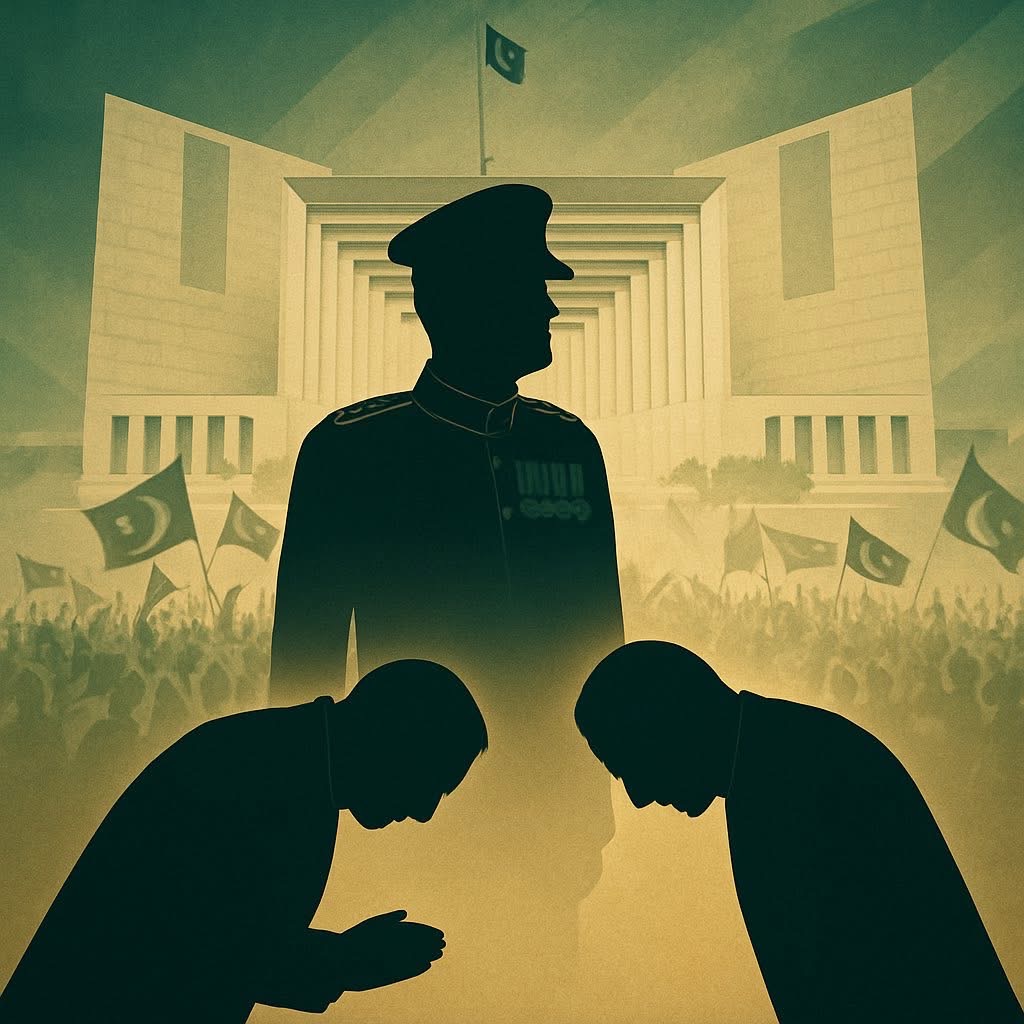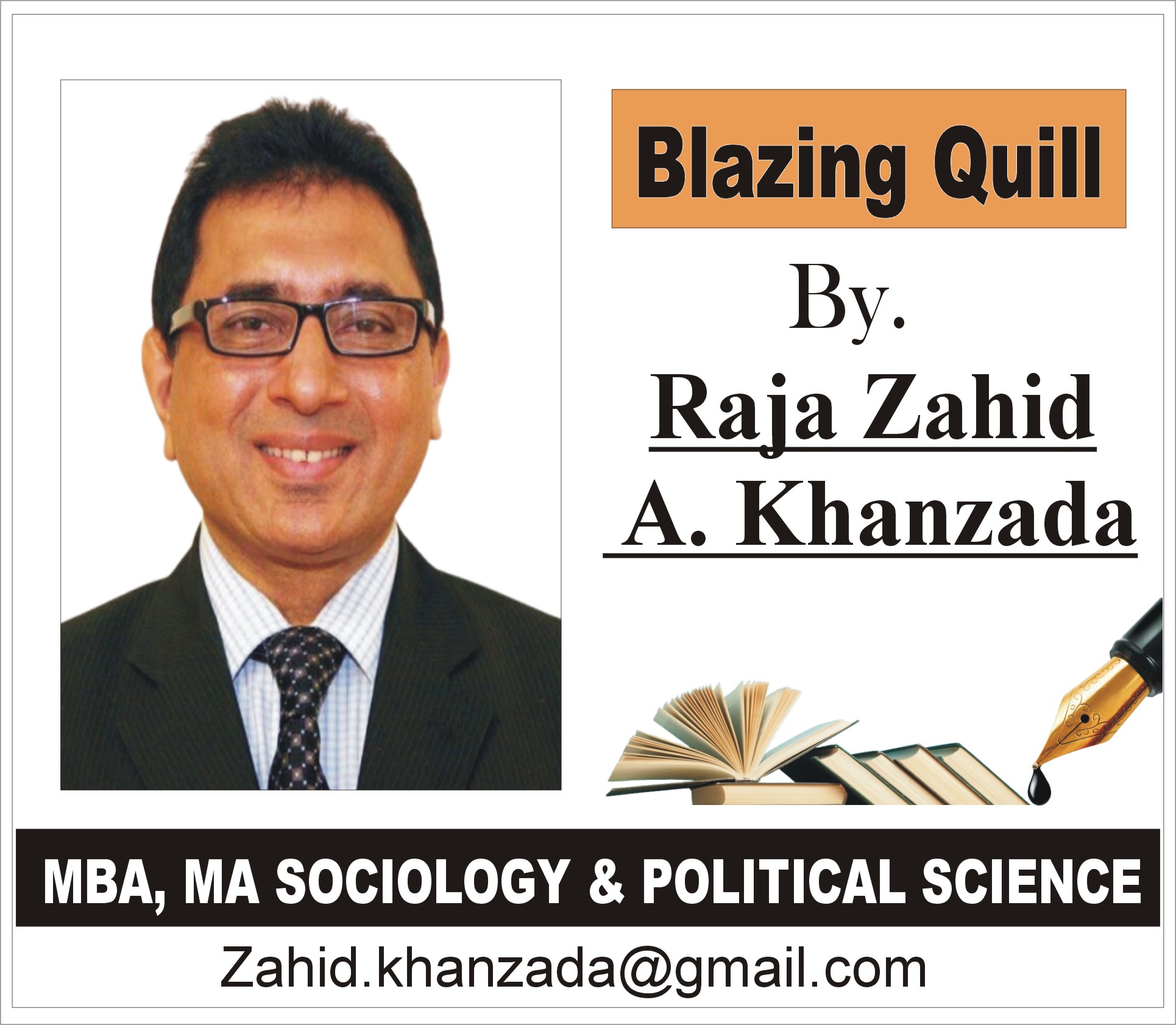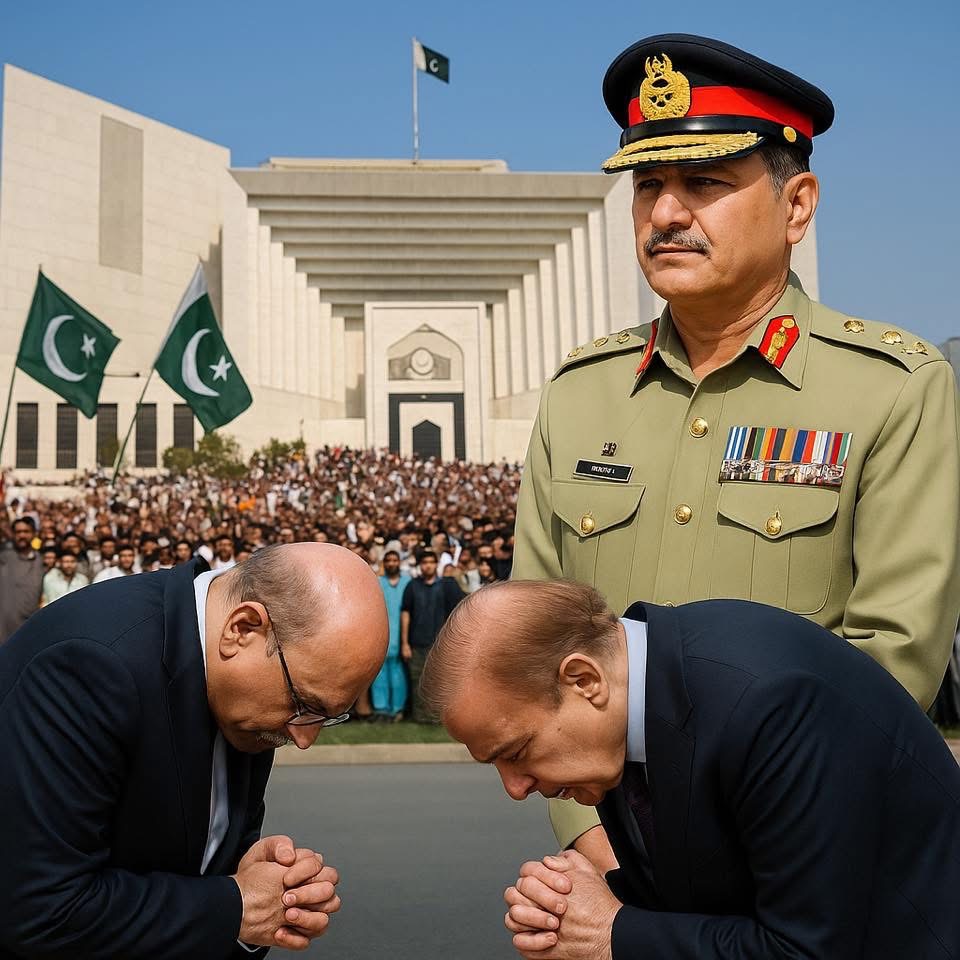The 27th Amendment — The Other Side of the Picture and the Naked Truth of Power !
By Raja Zahid Akhtar Khanzada
Politics in Pakistan has never followed a straight line.
It has always resembled an old, winding footpath where every step uncovers a hidden cry, a forgotten lament, or a buried secret struggling to breathe.
A few days ago, I wrote a column titled: “A Dream with Bhutto and Benazir: The Protest of Souls Against the Mutilation of the Constitution.”
The column split the landscape in two.
To critics of the government, it was a mirror of truth. To loyalists, it was a thorn in the eye.
I stand by every word, for truth never stands on one leg alone.
And when the film of power is played on the full screen, even faces hidden behind the fog begin to appear — along with the decisions that slowly carved the blade on which the 27th Amendment now rests.

This is not a defense of the amendment. It is an attempt to retrace the road that brought us here —
the moment history shifted course
and the hand that engraved the first scratch on the Constitution,
the scratch that later opened into a hundred wounds.
Who can forget that cold evening in Rawalpindi?
Benazir’s last speech was still humming in the wind
when history splashed it with blood.
Her smile froze, her breath halted,
and an entire nation stopped mid-step.
People believed one era had ended, and another had begun.
In truth, that moment marked the opening chapter
of the story whose final page now stands before us
in the form of the 27th Constitutional Amendment.
Her assassination gave the PPP a wave of sympathy strong enough
to carry the party to victory in 2008.
Zardari entered the Presidency,
Gilani took the Prime Minister’s chair,
and the nation once again began dreaming, of a new morning, a restored judiciary, of chants of “Go Musharraf Go,” of a reborn democracy.
But in the shadows, another script had already begun.
Musharraf was sent home with a guard of honor
a silent pact between politicians and power centers
to forget the past and move forward.
Zardari relinquished the power to dissolve Parliament,
rewriting a chapter of history,
but behind the curtains, the same whispers persisted.
A newly empowered judiciary declared:
“Those who play with the Constitution will become examples.”
NRO was struck down.
Musharraf was charged with treason.
A special court was formed.
And in 2019, for the first time in Pakistan’s history,
a former Army Chief was sentenced to death.
It was not a verdict against a man —
it was a silent warning to an entire establishment.
Then came the pressure on Gilani:
write to Switzerland against the President.
He refused.
He was dismissed.
Raja Pervez Ashraf inherited the same storm.
Then came Panama, and Nawaz Sharif was disqualified for life.
The judiciary that the public had restored with sacrifice
slowly became the battlefield
where elected governments were toppled not by coups,
but by verdicts.
Courts became swords, shields, and sometimes heroes.
And the establishment, with quiet brilliance,
entangled both sides into each other
until its own shadow grew long enough
to dwarf every other character in the frame.
Imran Khan, after years of attacking the old order,
became the centerpiece of a new engineering experiment —
the quietest in Pakistan’s history.
He came promising change,
but governed with vengeance.
Opponents became enemies.
Institutions became targets.
And the country drifted deeper into turmoil.
Then the cycle repeated:
estrangement, no-confidence,
Form-47, and political fracture.
In 75 years, no Prime Minister has completed a term.
Some were killed,some dismissed,
some dragged down by courts, some by generals, some by their own allies,
some by their own missteps.
This is not the fault of the establishment alone.
Politicians share the guilt.
The judiciary shares the spectacle.
Then geopolitics shifted.
Trump entered the White House.
Regional alignments changed.
Pakistan’s military narrative strengthened after war,
and a new argument rose:
power must be centralized, unified, protected.
From that logic, the 27th Amendment was born. The very parties that once defined resistance to authoritarianism
stood in a single file voting for it.
Global media declared: “Pakistan has moved its Constitution under a new military canopy.”
The circle of history had closed once more.
And the people? They were told again that “the crisis begins with the courts,”
while no leader dared to look into their own collar.
This is not a tale of one institution.
It is the three-pronged spear of power
and its target has always been the people.
The 27th Amendment is not an accident. It is the arithmetic of decades of compromises.
History can offer explanations
but never excuses.
And the bitter truth remains:
those few who dared to resist were punished,
those who bent were elevated,
and the weakest were pushed toward deals, bargains, and silence.
We—all of us—
with our complacency, our cowardice, our temporary conveniences,
have helped lay the stones of this path.
This outcome is not the verdict of a single day, it is the long shadow of accumulated mistakes,
now standing before us like a cold, motionless monument.
Those very parties that once symbolized resistance
now stand bowed, in quiet submission,
before a newly sculpted monument of power.
And the people?
They are told again and again that
“the root of the crisis lies in the judiciary,”
while no one dares look into their own collar.
The truth is that this game belongs to no single institution.
It is a three-edged trident of power,
and its target — always — has been the people of Pakistan.
The judiciary was turned into a weapon,
and the establishment wielded both sides, with such remarkable mastery
that its shadow has now stretched so long, the remaining actors appear diminished beneath it.
I do not write this to rescue the amendment. I write it only to say that
when a nation repeats the same mistake, its Constitution suffers the same fate as its vote, fractured, scattered, stripped of weight.
Compromising on principles
was a sin yesterday, a failure today,
and will remain a betrayal tomorrow
for as long as politicians look toward
some “hidden referee” to save them,
and the judiciary keeps slipping between hero, umpire, and savior, forgetting its own role.
In such a fog, no dawn of change can rise.
The 27th Amendment is no accident.
It is the collective handwriting of those
who have wounded democracy for decades in the name of convenience.
And now the moment has come
when democracy is not merely injured
but seems poised to receive the final blow.
History can explain causes, but it can never justify them.
And the bitterest truth is this:
those few leaders who dared to resist
were turned into warnings; those who bent were polished, elevated, and presented to the nation as saviors;
and the weak were pushed under the weight of necessity, into deals and NROs.
Thus we all, through our silences,
our frailties, and our appetite for momentary gain, have paved the road to this outcome ourselves.
This is not the verdict of a single day.
It is the long, cold shadow
of years of accumulated mistakes, now standing before us
like a silent stone, unmoving, unblinking.




